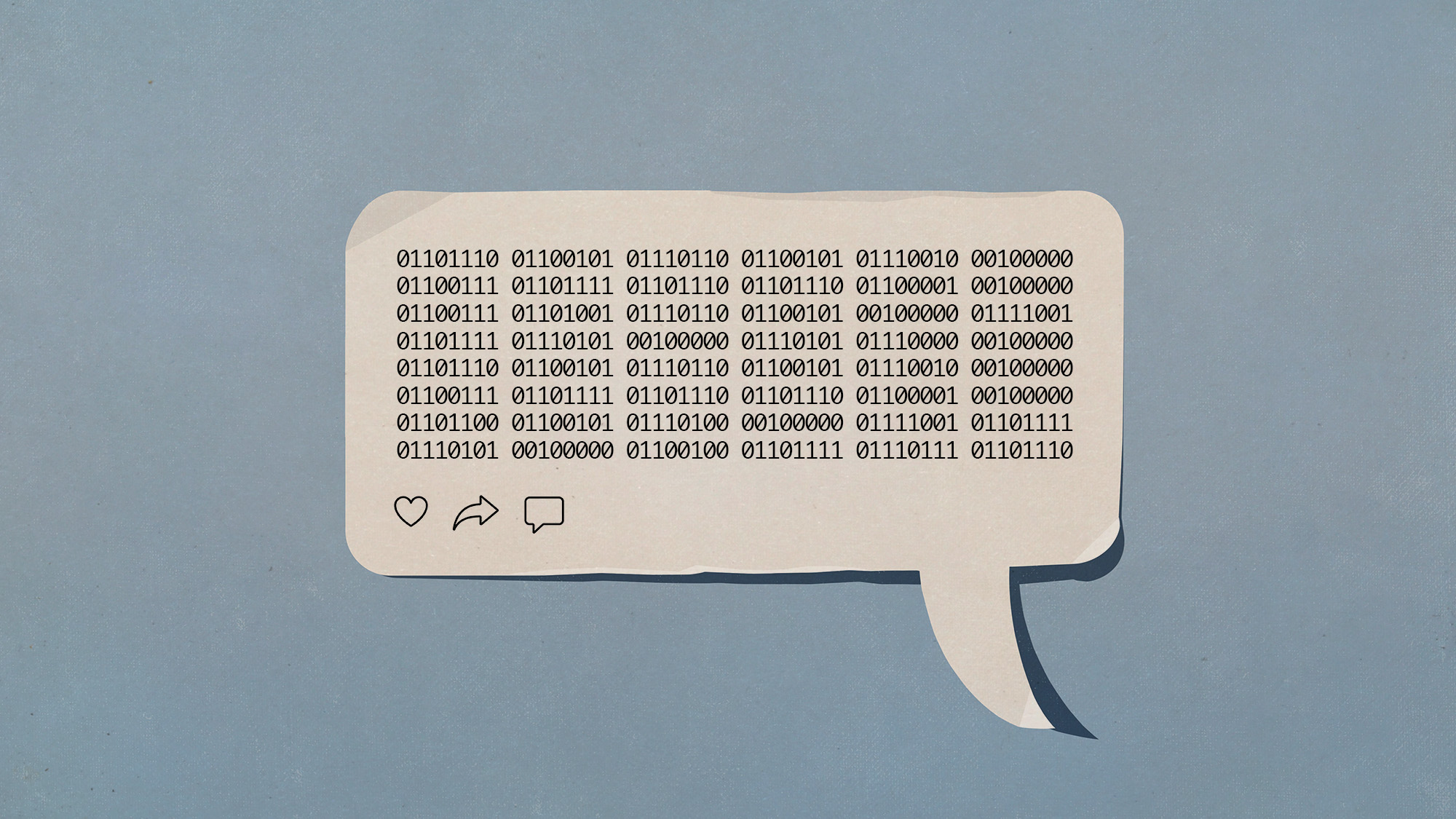What you can and can’t share on OnlyFans
Social platform’s U-turn on porn ban followed backlash from users and financial partners

A free daily email with the biggest news stories of the day – and the best features from TheWeek.com
You are now subscribed
Your newsletter sign-up was successful
Imagine if Playboy in its prime had suddenly declared that nude photos were being banned from its pages.
That’s “the equivalent” of what OnlyFans did last month, when the paid social network announced that “sexually explicit” material would no longer be allowed on its website, said Sarah Ditum in The Guardian.
The digital platform allows users to charge fans for exclusive pictures, videos and other customised content, and features more than just pornography. You can get training tips from athletes, for instance, or cooking tutorials. Cardi B and Bella Thorne are among several mainstream celebrities to have set up accounts.
The Week
Escape your echo chamber. Get the facts behind the news, plus analysis from multiple perspectives.

Sign up for The Week's Free Newsletters
From our morning news briefing to a weekly Good News Newsletter, get the best of The Week delivered directly to your inbox.
From our morning news briefing to a weekly Good News Newsletter, get the best of The Week delivered directly to your inbox.
But it’s porn that has fuelled the London start-up’s rapid growth and is responsible for the lion’s share of the £1.7bn in sales that OnlyFans took in the year to November 2020. So the decision to ban explicit content seemed “perverse to many onlookers (and not the kind of perversity you’d pay a subscription for)”, said Ditum.
Some liberal commentators portray OnlyFans as “a safe, consequence-free way to sell sex” that puts power back in the hands of women, said Julie Bindel in The Spectator. An OnlyFans creator told the BBC that the porn ban - which was planned to come into effect from 1 October - would be a “kick in the teeth” for them.
Amid a furious online backlash, the service rolled back on the decision just days later. On 25 August, OnlyFans said that it had “secured assurances necessary to support our diverse creator community” and that the policy change was being “suspended”.
What really drove the drastic change to the company’s business model was pressure from banks and other financial partners who don’t want to be associated with unwholesome content, it emerged.
A free daily email with the biggest news stories of the day – and the best features from TheWeek.com
In a tweet posted on 21 August that was addressed to sex workers and signed off with the hashtag #SexWorkIsWork, the company had said that a porn ban was “necessary to secure banking and payment services to support you”. OnlyFans chief executive Tim Stokely subsequently told the Financial Times that JPMorgan Chase was “particularly aggressive in closing accounts of sex workers”.
“We obviously do not want to lose our most loyal creators,” Stokely said. The proposed policy change, he explained, was a move to “safeguard their funds and subscriptions from increasingly unfair actions by banks and media companies”.
Such concerns sound “commendable in theory”, said Arwa Mahdawi in The Guardian. And they are not new.
Mastercard, for instance, won’t process payments to adult sites unless they can prove that their content is not associated with sex trafficking, “revenge porn” or child exploitation.
In practice, though, it’s disturbing that payment processors are setting themselves up as censors and moral arbiters - and in this case, effectively forcing sex workers off a site that at least allowed them to “be their own boss”.
Indeed, the OnlyFans row is just another example of “the influence of banks and payment service providers over social media and content creation services online”, said Time magazine.
Only a handful of women are getting rich from the site: “the average earnings are in fact £120 per month”, said Bindel in The Spectator. Nor can the platform be described as “safe”: some women have been stalked by “clients” who have managed to trace them.
OnlyFans’ moderators told a BBC investigation that they had seen cases of child abuse and bestiality. And while the porn ban plan has been ditched, many commentators argue that if social networks are now running shy from explicit content, that can only be a good thing.
OnlyFans’ full terms of service lay out details on what can and can’t be shared on the platform, but here’s a snapshot:
Can share:
- Adult content that complies with the company’s acceptable use policy
- Co-authored content: creators can share content that features anyone other than themselves so long as they too are an OnlyFans user and have given express permission for the content in which they feature to be shared
- Content that involves nudity
- Content that includes third-party material so long as all rights, licences, written consents and releases necessary have been secured
Can’t share:
- Content that includes, shows or refers to anyone under the age of 18
- Content that promotes or refers to firearms, weapons, drugs, incest, bestiality, self-harm and suicide. Further banned content includes that which shows violence, lack of consent, sexual assault, “revenge porn” or prostitution
- Hate speech
- Anyone else’s personal data, or confidential information including documents, email addresses and financial information
- Content involving nudity that is broadcast from a place where public nudity is against the law
- Content that promotes or involve third-party sales or activities
- Content that violates the intellectual property rights of other creators
-
 Bad Bunny’s Super Bowl: A win for unity
Bad Bunny’s Super Bowl: A win for unityFeature The global superstar's halftime show was a celebration for everyone to enjoy
-
 Book reviews: ‘Bonfire of the Murdochs’ and ‘The Typewriter and the Guillotine’
Book reviews: ‘Bonfire of the Murdochs’ and ‘The Typewriter and the Guillotine’Feature New insights into the Murdoch family’s turmoil and a renowned journalist’s time in pre-World War II Paris
-
 Witkoff and Kushner tackle Ukraine, Iran in Geneva
Witkoff and Kushner tackle Ukraine, Iran in GenevaSpeed Read Steve Witkoff and Jared Kushner held negotiations aimed at securing a nuclear deal with Iran and an end to Russia’s war in Ukraine
-
 Moltbook: The AI-only social network
Moltbook: The AI-only social networkFeature Bots interact on Moltbook like humans use Reddit
-
 Are Big Tech firms the new tobacco companies?
Are Big Tech firms the new tobacco companies?Today’s Big Question A trial will determine whether Meta and YouTube designed addictive products
-
 Is social media over?
Is social media over?Today’s Big Question We may look back on 2025 as the moment social media jumped the shark
-
 Australia’s teen social media ban takes effect
Australia’s teen social media ban takes effectSpeed Read Kids under age 16 are now barred from platforms including YouTube, TikTok, Instagram, Facebook, Snapchat and Reddit
-
 Trump allies reportedly poised to buy TikTok
Trump allies reportedly poised to buy TikTokSpeed Read Under the deal, U.S. companies would own about 80% of the company
-
 What an all-bot social network tells us about social media
What an all-bot social network tells us about social mediaUnder The Radar The experiment's findings 'didn't speak well of us'
-
 Broken brains: The social price of digital life
Broken brains: The social price of digital lifeFeature A new study shows that smartphones and streaming services may be fueling a sharp decline in responsibility and reliability in adults
-
 Supreme Court allows social media age check law
Supreme Court allows social media age check lawSpeed Read The court refused to intervene in a decision that affirmed a Mississippi law requiring social media users to verify their ages